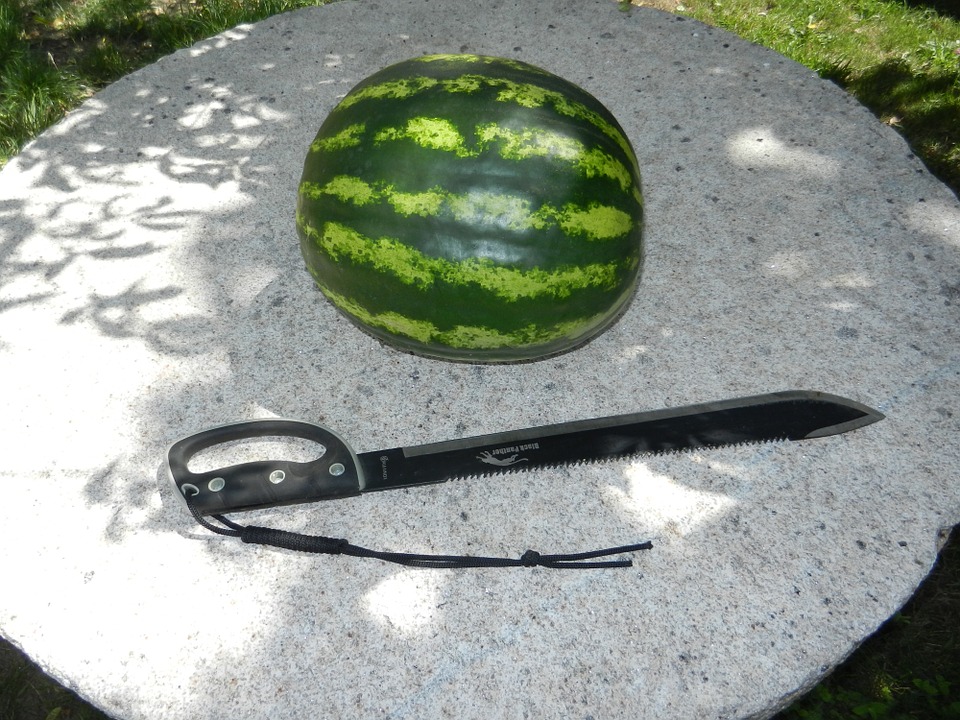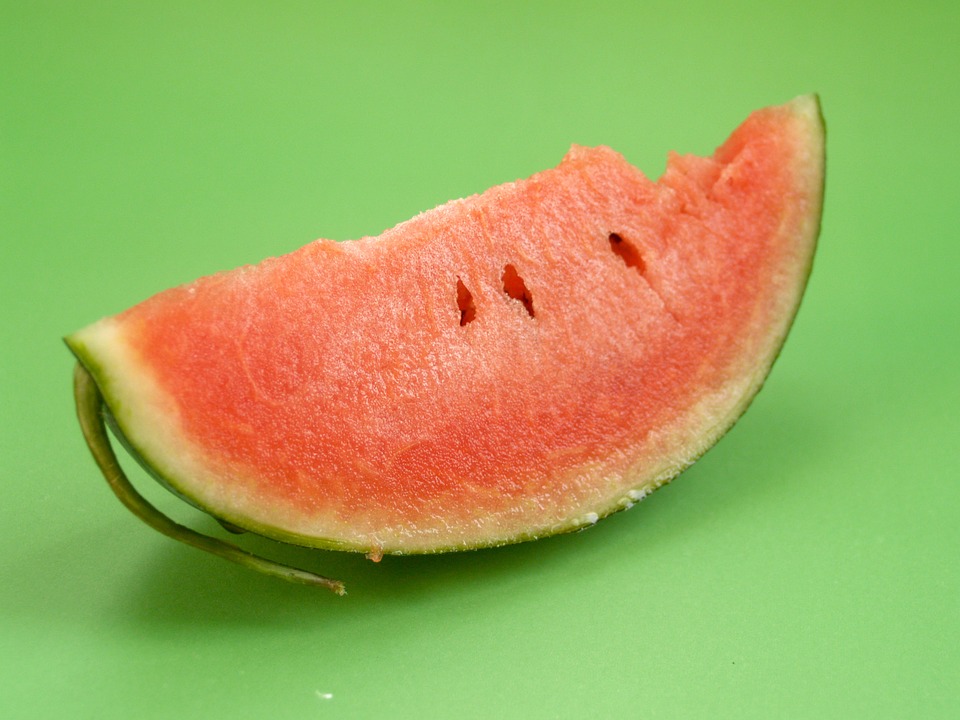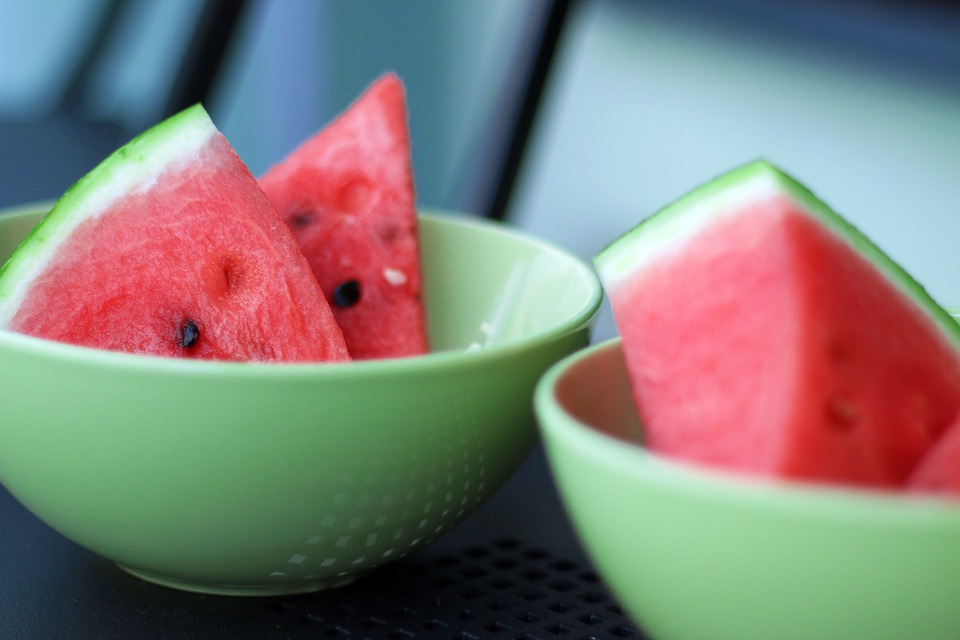You know that look. The one your dog gives you when they see you slicing into a juicy, red watermelon. It's a look that screams, "Please, can I have some?" We all love sharing our summer treats with our furry friends, but the question of whether they can safely eat the rind always lingers. While we know the juicy flesh is a summertime delight for dogs, what about the green, outer layer? Is watermelon rind a friend or foe to our canine companions?
I've always been a bit wary about giving my pup, Charlie, anything other than the sweet flesh. He's a bit of a picky eater, and I don't want to upset his tummy. So, when the watermelon rind would always end up in the compost, I found myself wondering, "Is there any benefit for my dog in that rind?" This curiosity led me on a journey to unravel the truth about watermelon rind and its potential impact on our canine friends.
(Part 1) The Rind: A Closer Look

The rind, often discarded as "waste" by humans, is actually a treasure trove of nutrients. While it may not be the most appealing part of the fruit, it's packed with things that can be beneficial for dogs.
A Nutritional Powerhouse
Watermelon rind is a nutritional powerhouse that shouldn't be overlooked. It's brimming with:
- Fiber: This is essential for good digestion, especially for dogs with sensitive stomachs. It helps regulate their bowel movements, making sure everything runs smoothly.
- Vitamin C: A vital antioxidant that strengthens the immune system. It helps protect your dog's body from harmful free radicals.
- Potassium: This plays a crucial role in maintaining healthy muscles, nerve function, and proper fluid balance in the body.
- Citrulline: This amino acid is a real gem! Studies suggest it could have a positive impact on heart health and even help regulate blood pressure.
The Potential Concerns
While the rind is packed with goodies, there are a few things to consider before offering it to your dog:
- Pesticide Exposure: Watermelon rinds can absorb pesticides, which can be harmful to dogs. Always opt for organic watermelon whenever possible to minimize this risk.
- Digestive Challenges: The rind can be tough for dogs to digest, especially smaller breeds. It can lead to bloating, gas, and even constipation if they eat too much.
- Sugar Content: Though lower in sugar than the flesh, watermelon rind still contains a significant amount of natural sugars. This can be a concern for dogs with diabetes or weight issues.
(Part 2) What the Experts Have to Say

To get a more informed perspective, I went straight to the experts: veterinarians and canine nutritionists. They provided some valuable insights that helped me make informed decisions about Charlie's treats.
Veterinarian's Advice: Moderation Is Key
Dr. Johnson, my vet, emphasized the importance of moderation. He said, "While watermelon rind isn't inherently toxic, feeding it in large quantities can cause digestive upset. It's like giving them too much of any other treat – a little is okay, but too much can be a problem." He advised me to introduce it slowly, observe Charlie for any reactions, and stick to small, infrequent treats.
Nutritionist's Perspective: Variety Is the Spice of Life
Ms. Smith, a canine nutritionist, echoed Dr. Johnson's advice about moderation. She also stressed the importance of variety in a dog's diet. "Watermelon rind can offer some nutritional benefits," she explained, "but it shouldn't be a primary food source. Just like we humans benefit from a varied diet, so do our canine companions." She encouraged me to look at watermelon rind as an occasional treat, not a meal replacement.
(Part 3) My Experience: Charlie's Watermelon Rind Adventure

Armed with this newfound knowledge, I started with small, carefully cut pieces of watermelon rind for Charlie. I peeled off the green outer layer, removed the seeds, and cut the rind into manageable chunks. I monitored him closely for any signs of digestive upset, but he seemed to enjoy the crunchy treat!
A Treat, Not a Feast
I made sure to keep it to just a small piece or two, never exceeding a tablespoon. This was definitely a treat, not a meal replacement. It became a fun way to give him something different and add some variety to his diet.
Cautious Observation
I was relieved to see that Charlie didn't exhibit any negative reactions. No bloating, gas, or constipation. He seemed to relish the crunchiness and the refreshing taste. But I still kept a close eye on him for any changes in behavior or bowel movements. I'm a cautious dog parent!
(Part 4) The Verdict: A Balancing Act
So, is watermelon rind a good treat for dogs? The answer, as with many things in life, is a bit of a mixed bag. It's not a miracle food that will solve all your dog's dietary problems, but it can be a fun, occasional treat for many dogs who enjoy crunchy textures.
- Benefits: It can offer a boost of fiber and other nutrients. It's also a great refreshing snack on hot days.
- Cautions: It's vital to introduce it gradually and in moderation. Always watch your dog for any digestive upset or other reactions.
- Not for Everyone: It's not suitable for dogs with diabetes, weight problems, or digestive sensitivities. Their needs are different.
(Part 5) Tips for Safe and Responsible Watermelon Rind Treats
If you decide to offer your dog a taste of watermelon rind, here's what you need to keep in mind:
- Organic Is Best: Choose organic watermelon to minimize the risk of pesticide exposure.
- Peel and Cut: Remove the green outer layer and cut the rind into small, bite-sized pieces. Think "dog-friendly" sizes!
- Seedless Is Best: Seeds can be a choking hazard for dogs. Remove them completely.
- Start Small, Observe Big: Introduce it gradually. Begin with a tiny piece and monitor your dog for any reactions.
- Moderation Is Key: Don't overdo it. A tablespoon or two is plenty for most dogs.
- Trust Your Gut: Keep a close eye on your dog for any signs of digestive upset or other reactions. If you notice anything amiss, stop giving them the rind.
(Part 6) Exploring Other Healthy Treats
If you're looking for a safe and healthy treat for your dog, there are other options that might be better suited for their digestive system. Here are some great alternatives to watermelon rind:
- Watermelon Flesh: The juicy, red flesh of watermelon is a safe and refreshing treat for dogs. It's especially enjoyable on hot days.
- Carrots: These crunchy, low-calorie treats are packed with vitamins and minerals. They're great for dental health too!
- Celery: A refreshing and hydrating option that can help with dental health. The crunch is a good chew for dogs.
- Apples: A good source of fiber and antioxidants. Be sure to remove the core and seeds. They can be harmful to dogs.
- Bananas: These are potassium-rich treats that are also a good source of fiber. They're a great source of energy too!
(Part 7) A Dog's Perspective: Charlie's Thoughts
Charlie, my furry sidekick, has definitely embraced the watermelon rind experience. He's become a bit of a connoisseur, recognizing the rind from a mile away. The crunch is his favorite part, and he'll wag his tail excitedly when I offer him a piece. He's always happy for a refreshing bite, especially on a hot summer day.
He's a bit of a foodie, always up for trying new things. But he's also cautious, letting me know if he's not a fan of something. He's never had any adverse reactions to watermelon rind, and he seems to tolerate it well, but I still take precautions and monitor him closely. It's better to be safe than sorry.
(Part 8) The Bottom Line
Watermelon rind can be a safe and enjoyable treat for dogs, but it's crucial to approach it with caution. Moderation is key, and it's essential to monitor your dog for any signs of digestive upset. Remember, every dog is different, and what works for one dog might not work for another. If you have any concerns about feeding watermelon rind to your dog, consult with your veterinarian. They can provide personalized advice for your furry friend.
Ultimately, the decision is yours. I've learned that it's not about finding a one-size-fits-all solution but rather about understanding your dog's individual needs and preferences. For Charlie and me, watermelon rind is a fun and occasionally enjoyed treat. But for other dogs, it might not be the best choice. It's all about finding what works best for your furry companion.
FAQs
1. Is watermelon rind toxic to dogs?
Watermelon rind is not toxic to dogs. However, it can be difficult to digest and may cause digestive upset if consumed in large quantities. It's a bit like eating too much corn on the cob - not necessarily harmful, but not always easy to digest.
2. How much watermelon rind can I give my dog?
A tablespoon or two of watermelon rind is generally safe for most dogs. It's essential to introduce it gradually and monitor your dog for any adverse reactions. Just like with any new treat, start slow and see how they react.
3. What are the signs of digestive upset in dogs?
Signs of digestive upset in dogs can include vomiting, diarrhea, gas, bloating, constipation, and loss of appetite. If you notice any of these, it's a good idea to stop giving them watermelon rind and consult with your veterinarian.
4. Are there any dogs that shouldn't eat watermelon rind?
Dogs with diabetes, weight problems, or digestive sensitivities should avoid watermelon rind. These conditions might make it more difficult for their bodies to process the rind's sugars or fiber.
5. Can I feed my dog watermelon rind every day?
No, watermelon rind should be given as an occasional treat, not a daily staple. It's essential to ensure your dog's diet is balanced and nutritious. Stick to their regular food for the most part and use watermelon rind as a special treat.
Everyone is watching
-

Can Dogs Eat Bananas? A Guide to Safe Treats
DOGS & PUPPIESThis comprehensive guide will delve into the world of canine nutrition, focusing on the popular question: can ...
-

Can Dogs Eat Oranges? (Is It Safe or Toxic?)
DOGS & PUPPIESThis article delves into the question of whether dogs can safely consume oranges. We'll explore the nutrition...
-

Can Dogs Eat Grapes? The Shocking Truth About This Fruit
DOGS & PUPPIESThis article delves into the controversial topic of grapes and dogs, exploring the potential dangers associate...
-

Why Do Dogs Eat Poop? Understanding Coprophagia in Dogs
DOGS & PUPPIESThis article delves into the perplexing phenomenon of coprophagia, the act of eating faeces, in dogs. We explo...
-

Can Dogs Eat Shrimp? A Guide to Safety and Risks
DOGS & PUPPIESThis comprehensive guide dives into the world of shrimp and dogs, exploring the potential benefits and risks a...
